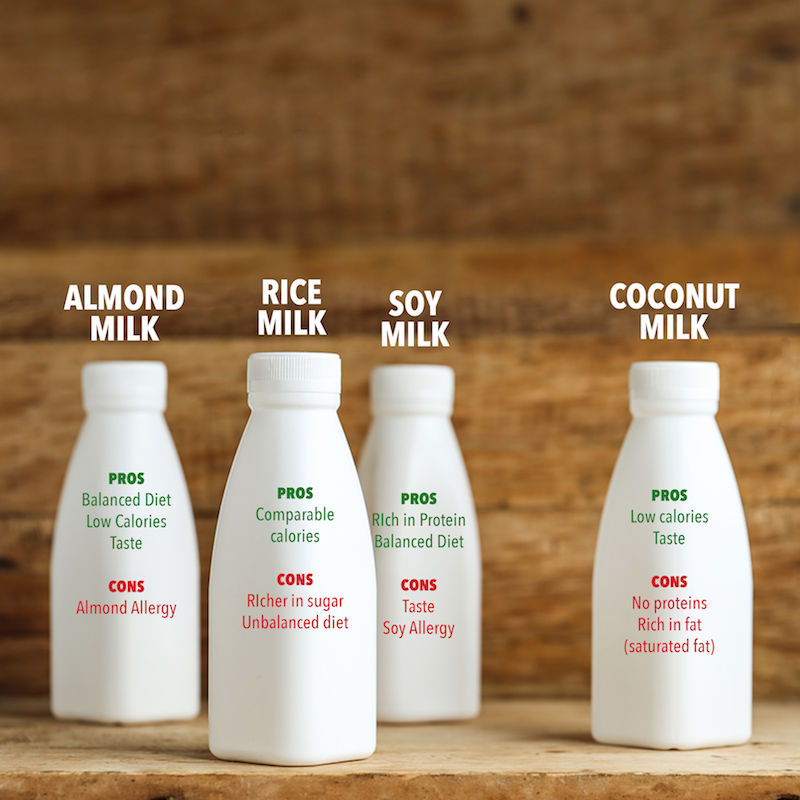A study examined and compared the nutritional values of four most-commonly consumed plant-based, unsweetened milk beverages – almond milk, soy milk, rice milk and coconut milk - with those of cow’s milk.
It concludes that after cow’s milk, which is still the most nutritious, soy milk comes out a clear winner.
The study
The researchers at McGill University in Montreal, Canada, compared consumption of 240 ml of the unsweetened versions of the different plant-based milks with the same serving of cow’s milk. Their findings were reported in the Journal of Food Science Technology.
Major nutrient comparisons based on 240 ml servings
Calories (kcal)
- Cow’s: 158
- Soy: 95
- Almond: 35
- Rice: 130
- Coconut: 45
Cow’s milk has the most balanced energy profile, providing 29% energy from carbohydrates, 46% from fats, and 21% from proteins. Soy milk is more balanced among the plant-based milks. But 69% of energy from almond milk and 79% from coconut milk come from fats, and 89% energy from ric milk is from carbohydrates.
Fats (g)
- Cow’s: 9.05
- Soy: 4.5
- Almond: 2.5
- Rice: 2.5
- Coconut 4.25
Of the fat content in cow’s milk, about 63% is saturated fat (generally associated with cardiovascular risks), and 29% is monounsaturated fatty acids (beneficial for heart health). Saturated fats are the lowest in almond milk (0%), followed by 7% in rice milk, and 15% in soy milk. Almost all (95%) of the fats in coconut milk are saturated. On the contrary, almond contains no saturated fats and 86% of unsaturated fatty acids.
There is a significant amount of cholesterol present in cow’s milk, because it comes from mammal source. None of the plant-based milks contain cholesterol.
Proteins
- Cow’s: 8.11
- Soy: 8
- Almond: 1
- Rice: 1
- Coconut: 0
Cow’s milk is a rich source of proteins, and only soy milk is comparable in providing similar amount of proteins. But the proteins are also mainly responsible for triggering allergic reactions.
Diary milk allergy is the most common allergy among infants and children, about 2.2-3.5% of infants are allergic to it, followed by peanuts and tree nuts.
Carbohydrates (g)
- Cow’s: 11.5
- Soy: 4
- Almond: 1
- Rice: 26
- Coconut: 1
Lactose intolerance, observed in about 15-75% of adults depending on ethnic background, is due to the absence or deficiency of the enzyme lactase in the digestive tract. Lactase helps to the break down lactose carbohydrate in cow’s milk.


